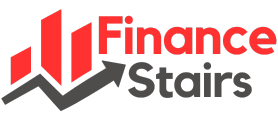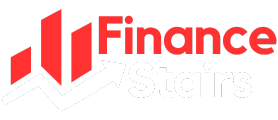The Best Small-Business Loans of 2024
Look for lenders that provide loans of $100,000 or less at competitive rates and require minimum personal and business credit history verification.
Search for lenders offering flexible terms like National Funding. Their quick application process and early payoff discounts could make the experience worthwhile.
Banks and Credit Unions
Small business loans can help expand and hire employees more easily while investing in new equipment. Loans available from banks, credit unions and online lenders offer different loan amounts and repayment terms that fit best with what your needs and expectations are; find one with low interest rates and flexible payment periods for optimal results.
Consider whether a bank or alternative lending provider would best meet your business funding needs. Some providers specialize in specific forms of small-business financing such as merchant cash advances or working capital loans while others provide general business funding solutions.
One key distinction between traditional banks and credit unions lies in their different tax structures. Credit unions tend to operate on a non-profit model, meaning they don’t exist solely to generate profits for shareholders, instead investing back into their membership through lower interest rates and fees on business loans, savings accounts, and other financial tools – something which will likely benefit your business in terms of lower costs associated with borrowing money from them.
Banks offer one of the top options for small-business financing: Wells Fargo provides business checking accounts, lines of credit and commercial real estate loans as well as being an SBA preferred lender and offering both SBA 7(a) and 504 business development program loans.
SMB Compass, another bank option, offers several loan types including SBA 7(a) and 504 loans as well as equipment and working capital loans. Eligibility requirements, however, must include excellent credit with annual business revenue exceeding $250,000.
First Home Bank offers SBA 7(a) and 504 loans as well as unsecured capital and commercial real estate loans; it has also been recognized by the Small Business Administration as a Preferred Lender. Online lender Uplyft also provides small-business financing solutions, offering up to $500,000 lines of credit and working capital loans as well as merchant cash advances that are repaid with debit or credit card sales in future months.
Online Lenders
Online lenders provide small-business loans. These lenders tend to have less stringent financial requirements than banks or credit unions and fast turnaround times; however, they may charge higher interest rates and lack personalized customer service offered by banks. When selecting a lender, consider what qualities and uses are most important to you and then select accordingly.
To secure a business loan, lenders will require several pieces of information about your company and operations. They will need to know about its length of existence and monthly revenue as well as any current debt you might be carrying or assets that could serve as collateral should payments become difficult or you experience significant financial challenges that compromise its repayment capacity.
As you consider which lenders provide the best small-business loans, keep in mind that each has different criteria for qualifying – some only lending to established businesses of two years or more in operation; others may require at least six months in operation before qualifying for a startup loan; still others only fund certain types of businesses such as restaurants or retail stores.
Small Business Administration (SBA) loans offer some of the most reliable small-business loans. With low interest rates and flexible repayment terms, these federally backed loans come with attractive loan packages with specific application requirements that must be fulfilled. If this type of business loan interests you, contact your local SBA office for further details.
Credibly and National Funding are two online lenders that specialize in offering business loans to entrepreneurs with fair or bad credit, offering prequalification without hard credit pull and business lines of credit with limits up to $250,000. Both offer more flexible repayment terms compared to many lenders who typically require at least 625 personal credit score and one year in business as minimum requirements.
Business Grants
Business grants are free money provided by certain groups to entrepreneurs to launch or expand a small company. Grant recipients don’t need to repay them nor accrue interest payments compared to loan recipients. You may find grants through sources like the federal government, local communities and private companies.
The Environmental Protection Agency offers grants to assist businesses with innovative ways to reduce pollution and enhance the environment. You may also apply for one through your state economic development agency; local governments often run programs offering grants for small business startups; in Houston Texans’ case they partner with Amegy Bank to offer individual entrepreneurs $5,000 grants each.
Corporations like Visa often organize global competitions that provide startups with funding and other advantages. One such program, called the Visa Everywhere Initiative, gives entrepreneurs with tech-focused ideas a chance to win a $10,000 grant and get global exposure for their company. Wells Fargo also offers both an unsecured BusinessLine line of credit and SBA-backed Small Business Advantage line of credit that include Mastercard access for easy cash management.
Search online databases like GrantWatch for grant opportunities. The database houses thousands of grants from federal and state agencies, private foundations and corporations; you can filter by category or region to quickly locate opportunities that fit with your business model.
Be careful to read the fine print of each grant opportunity carefully – some grant programs offer competitive application pools while others may only remain open for a short time frame. Also don’t forget that most grants require applicants to create a business plan before applying; having it ready will make the application process smoother and save time when applying!
If you’re having difficulty with finding funding, consider reaching out to your local Small Business Development Center (SBDC). These centers can connect you with debt-based financing and state or regional grants while offering advice on starting up and expanding a business.
Angel Investors
Angel investors are wealthy individuals who invest in startups for convertible debt or equity. Experienced entrepreneurs themselves, angel investors understand the risks involved and may take an active role in helping the startup expand. In doing so, they provide valuable guidance that is especially helpful when developing business models and market strategies from scratch.
An angel investor differs from banks in that they focus solely on your business plan and potential growth rather than financial and credit history when considering investment decisions. Therefore, it’s advisable that before seeking out angel investors you document your financial status and create a detailed business plan as this will demonstrate your strength as an entrepreneur and help convince potential investors of its merit. It’s wise to identify how much funding is needed along with which percentage of equity ownership you want investors to hold before approaching an angel. Ideally, angels look for businesses with a viable exit strategy within three years so they can purchase back shares they own from existing angel investors if necessary.
Finding angel investors may not always be easy, but the effort can pay off. You can search for potential investors on networking websites such as LinkedIn and business-oriented online forums; ask a mentor or advisor to introduce you; attend university entrepreneur programs where deans and professors often have connections with investors; or join university entrepreneurship programs where professors might know of potential angels.
Search crowdfunding platforms such as Kiva to locate angel investors. This form of financing combines crowdsourcing and peer-to-peer lending, and allows entrepreneurs to post details about their venture and appeal for financial backing from individual donors who may contribute as little as $100 each – ideal for smaller projects where repayment terms may be short but interest rates can be high.
References
https://www.forbes.com/advisor/business-loans/best-small-business-loans/
https://www.lendingtree.com/business/small/
https://www.businessnewsdaily.com/8448-best-business-loans.html


